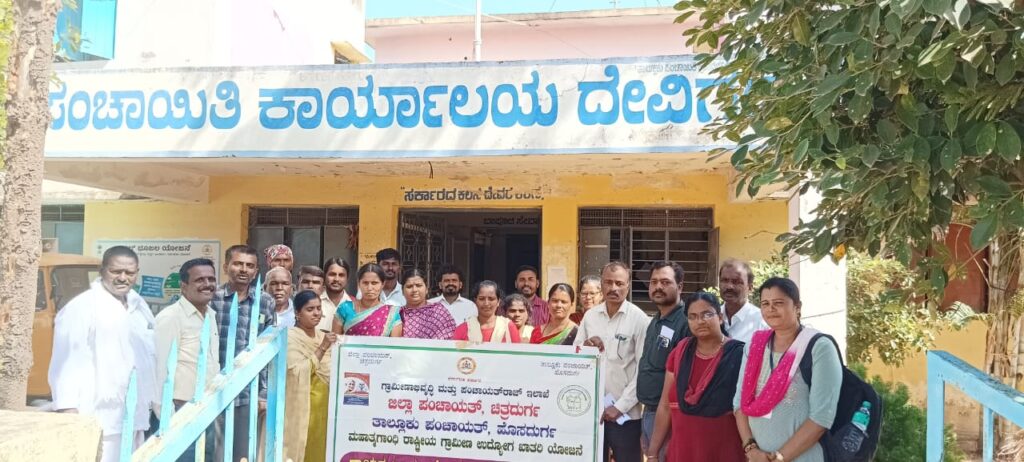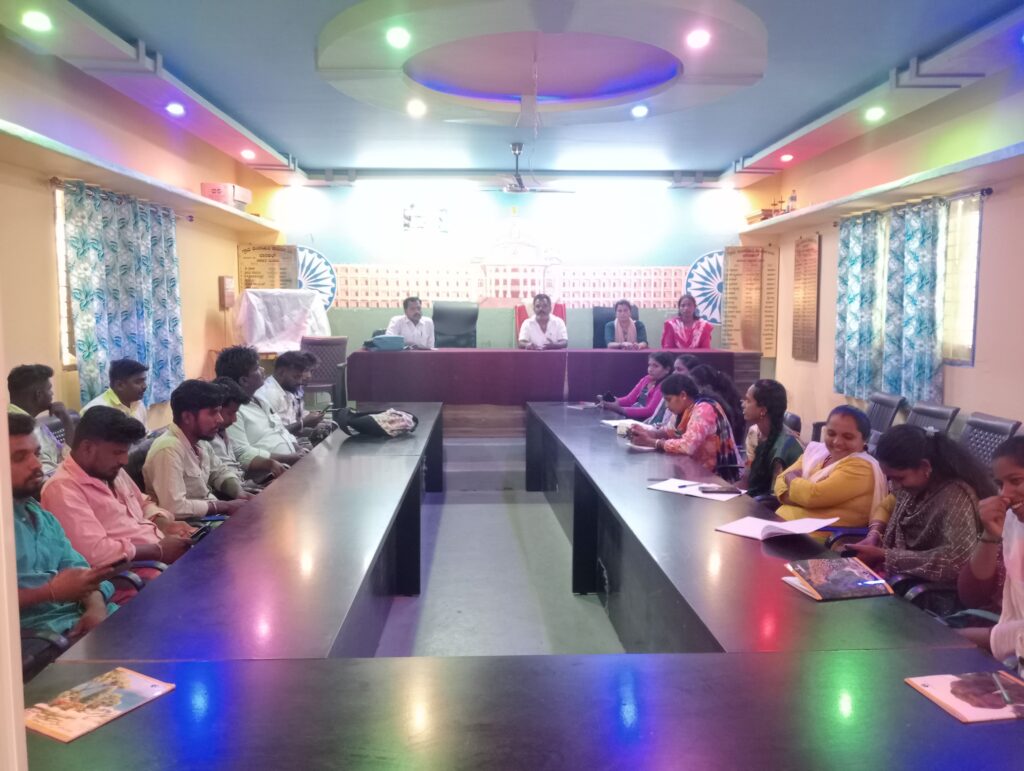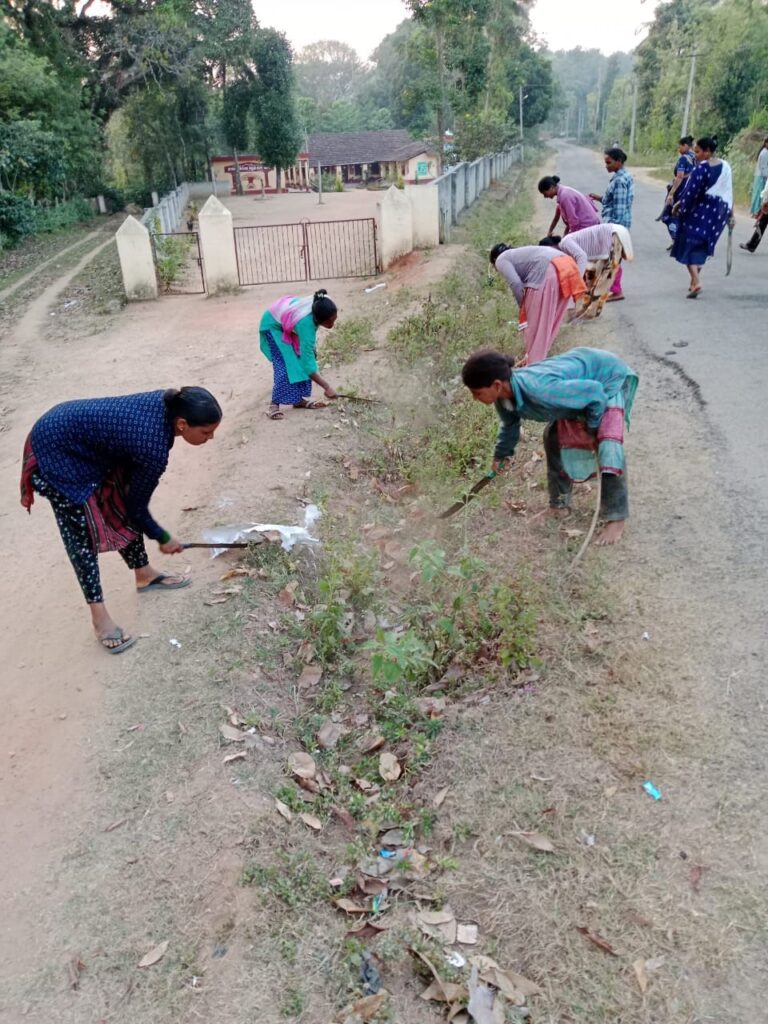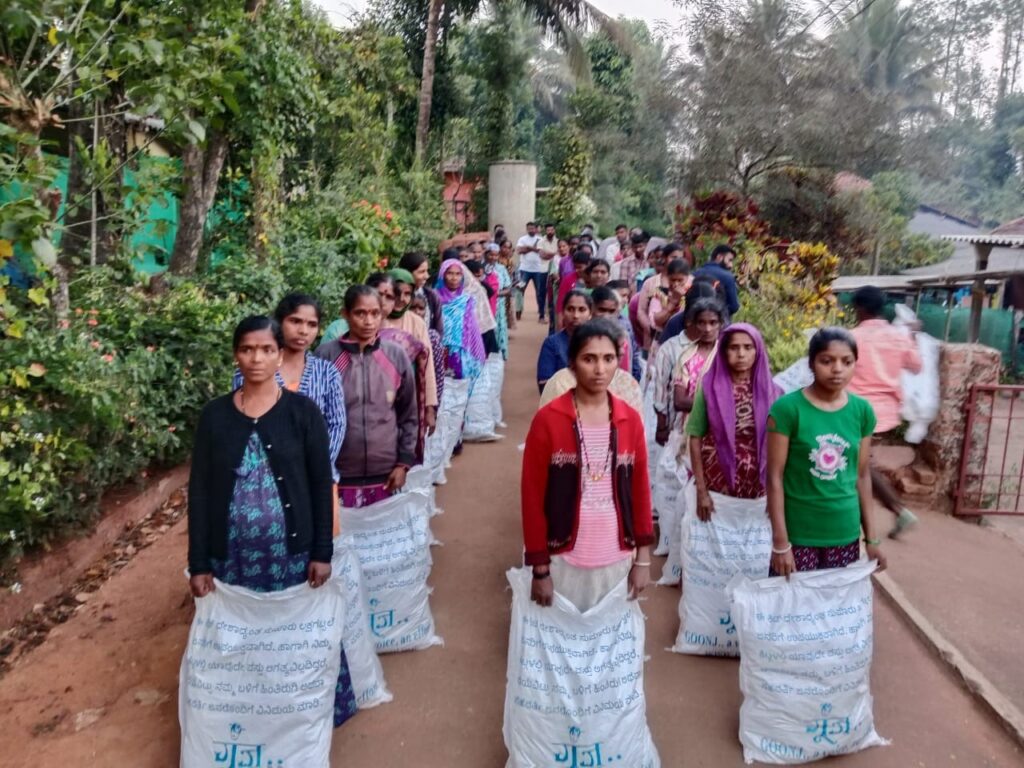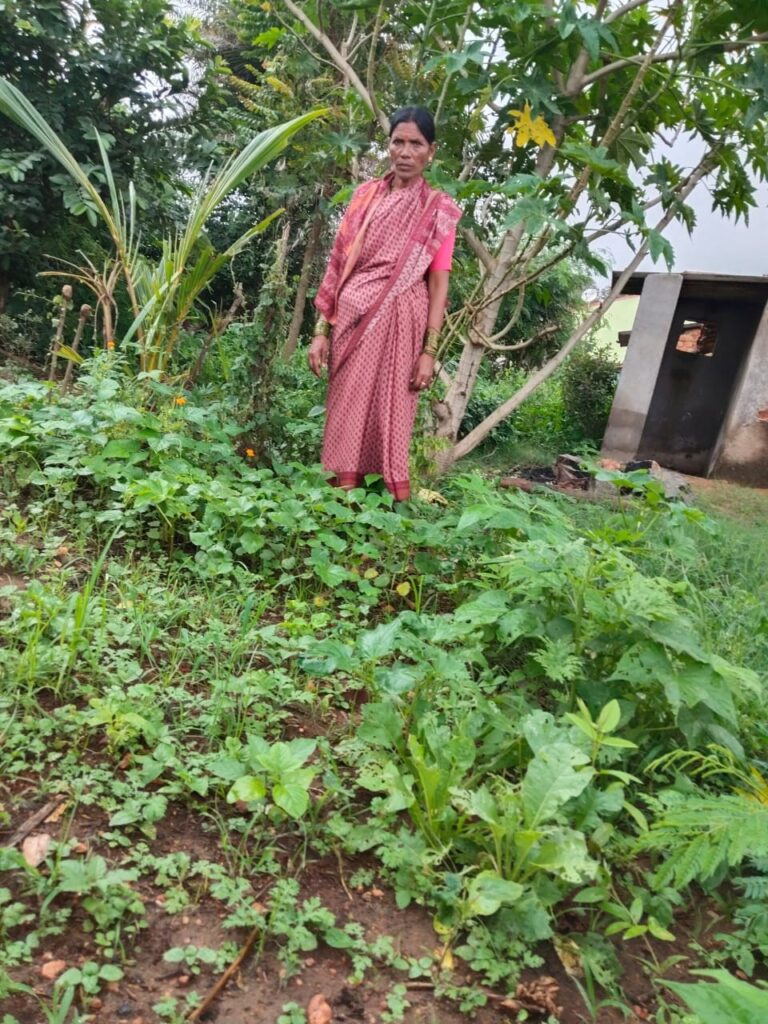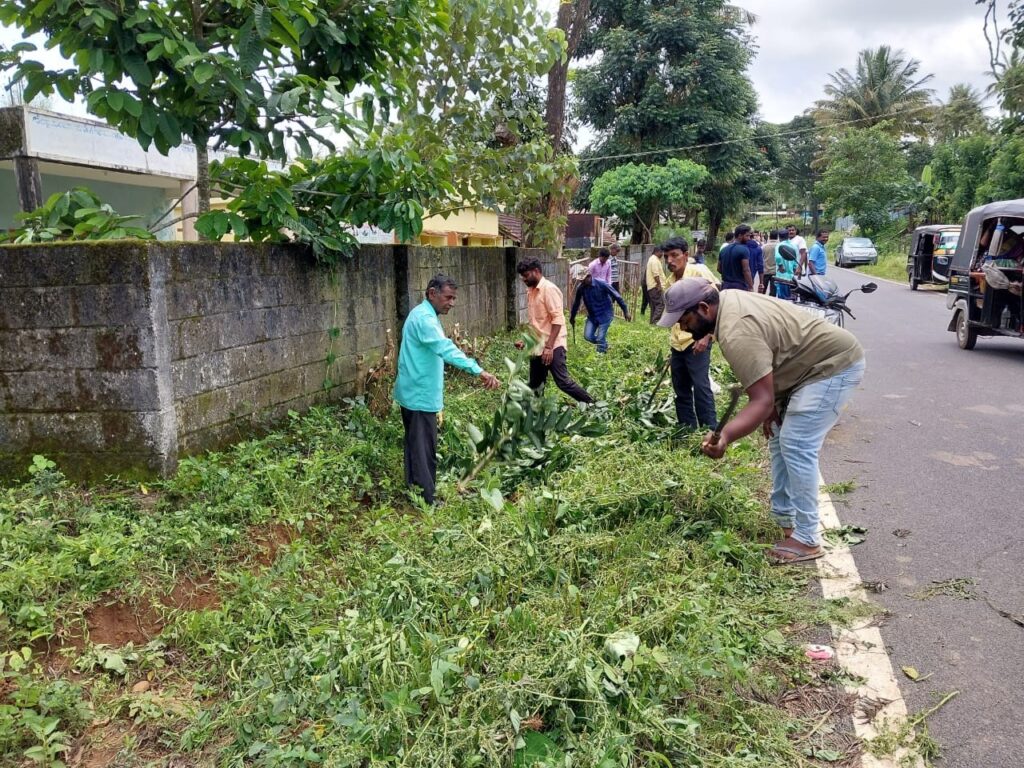Training Programs
A. Gram Swaraj Abhiyan – Karnataka
Strengthening the Implementation of MGNREGA through Mates Training
The Gram Swaraj Abhiyan in Karnataka is a collaborative initiative aimed at enhancing the effective implementation of the Mahatma Gandhi National Rural Employment Guarantee Act (MGNREGA) across Gram Panchayats in the state. Spearheaded by a coalition of 50 Civil Society Organizations (CSOs) from 20 districts and 50 taluks, initiated Chinthana Foundation in Chitradurga District to empower communities through structured training and strategic interventions of Gram Panchayaths.
Core Objectives and Vision:
- Empowering Wage Labourers:
By creating awareness and providing support structures, the programme aims to uphold the dignity and rights of rural workers. Community Mobilization:
Organising rural communities to recognize and assert their collective strength for greater local governance.Creating Sustainable Assets:
Emphasis is placed on building durable community assets through participatory planning and execution.Combating Corruption:
With reported corruption levels at 63% in the MGNREGA system in Karnataka, the initiative seeks to reduce malpractices and promote transparency.Targeted Inclusion:
Special focus will be given to the 37% of marginalized and vulnerable populations, ensuring their inclusion and benefit from the programme.Liberation and Rehabilitation:
A rights-based approach will be adopted, promoting social justice and rehabilitation for the marginalized.Empowerment through Rights:
The initiative is rooted in a rights-based framework, empowering communities to demand and access their entitlements under MGNREGA.
Key Highlights:
Mates Training Programme:
While the term “Mates Training” may sound technical, at its core, it is a transformative initiative. The goal is to develop Master Trainers who will in turn train 300 Mates (field-level supervisors) across the state. This capacity-building effort is central to improving on-ground execution of MGNREGA.Strategic Model Adoption:
The Abhiyan draws inspiration from the successful Rajasthan Model, adapting and replicating it within Karnataka’s socio-political context to ensure sustainable impact.Expanding Civil Society Engagement:
The programme aims to significantly enhance the role of civil society in monitoring and implementing MGNREGA, with the long-term vision of covering the entire state.Mindset Shift:
Beyond operational efficiency, the initiative focuses on changing the mindset of Mates – encouraging a spirit of selfless public service, community accountability, and active citizenship.
B. Village Sanitation through Community Participation
With the generous support of GOONJ Bengaluru, Chinthana Foundation implemented a Village Sanitation Programme in the Mudigere Taluk of Chikkamagaluru District. The objective of this initiative is to empower communities to take responsibility for their own development, particularly in the area of sanitation.
Under this programme, villagers voluntarily engaged in activities such as cleaning drainage systems, community halls, bus stops, roadsides, and other public spaces. In recognition of their efforts, participants received family kits containing clothes, shoes, toys for children, and other essential items.
Impact Highlights:
A total of 2,100 kits were distributed to families across 38 villages.
- Supported 150 ration kits for 150 families.
Donations also included toys, bicycles, tables, and chairs for Anganwadis and schools.
7 tatpals (tarpaulin sheets) were provided for temporary roofing repairs of damaged houses.
This initiative has been warmly received by local communities, with villagers actively and enthusiastically participating in this unique model of community-driven development.
C. Bio-Incentive Kitchen Garden
Chinthana Foundation is implementing the Bio-Incentive Kitchen Garden Project in the Ajjampura block of Chikkamagaluru district, with support from Robert and Ghislaine af Sandeberg (Sweden) and Raoul Vernede & Family (Netherlands). This project aligns with the Sustainable Development Goals (SDGs), focusing on Health, Nutrition, and Climate Change, emphasizing early detection, prevention, and environmental education.
Target Areas:
Villages: Begur Tandya, Siriganahalli, Arabala Gollarahatti
Schools: Bhotanahalli, Begur Tandya, Garagadahalli
Beneficiaries: 100 families and 3 rural schools
Project Objectives:
Raise environmental awareness among students and communities.
Encourage adoption of eco-friendly and sustainable practices.
Promote health and nutrition through fresh food production.
Foster environmental responsibility among students and parents.
Key Activities:
Tree Plantation Drives on World Environment Day (June 5, 2024).
Waste Management: Dustbins placed and awareness on recycling and composting promoted.
Hands-on Learning: Practical sessions on gardening and environmental projects.
School Kitchen Gardens: Students cultivated vegetables like beans, chillies, greens, tomatoes, okra, bitter gourd, ridge gourd, and radish.
Outcomes & Benefits:
Nutritious Midday Meals: Fresh produce from school gardens added to student meals.
Health & Nutrition: Enhanced dietary diversity and nutrient intake, preventing deficiencies.
Cost Savings: Reduced expenses on vegetables for schools.
Practical Education: Students learned about food sources, agriculture, and sustainability.
Physical Activity: Gardening promoted exercise and reduced sedentary lifestyles.
Community Engagement: Parents and local residents contributed tools, organic manure, and agricultural support.
By integrating the Bio-Incentive Kitchen Garden with the Midday Meal Program, schools are not only improving student health and nutrition but also embedding values of sustainability, responsibility, and community ownership for long-term development.
Post Tags :
Share :
